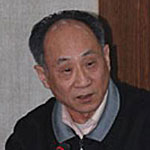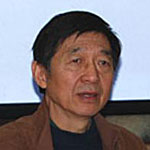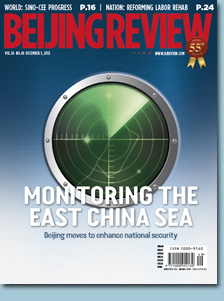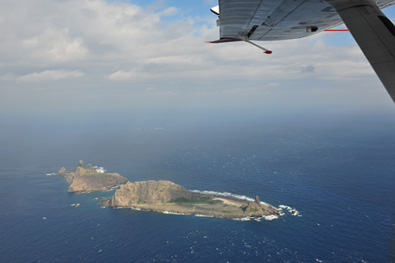|
This year marks the 110th anniversary of Zhou Enlai, the late Foreign Affairs Minister and first Premier of the People's Republic of China. One of the most popular and respected Chinese leaders during the 20th century, he is widely regarded as the founder of the country's diplomacy and a passionate promoter of world peace.
Three senior diplomats -- Li Zhaoxing, former Minister of Foreign Affairs; Zhang Hongxi, former Consul-General of the Chinese Consulate in New York City; Wu Jianmin, former Chinese Ambassador to France -- shared their views at the Second Seminar on Zhou Enlai's Thinking on Foreign Affairs, at China Foreign Affairs University on March 24.

Li Zhaoxing:
Zhou Enlai took charge of almost all the important actions and decisions in the history of China's foreign affairs, from October 1949 to 1976. He jointly initiated the independent foreign policy of peace with late Chairman Mao Zedong, and is widely regarded as the founder of the country's diplomacy.
On November 8, 1949, the founding day of the country's Foreign Ministry, Zhou raised the proposal that the diplomacy needs Chinese characteristics. He initiated the Five Principles of Peaceful Coexistence, which refer to mutual respect for territorial integrity and sovereignty, mutual non-aggression, non-interference in each other's internal affairs, equality and mutual benefit, and peaceful coexistence. His thoughts, from today's point of view, remain far-reaching. He was a person with high morals, and is honored as a talented diplomat because of his way of handling difficult problems. What he left behind can be seen as valuable and spiritual treasures for Chinese diplomats generation after generation.

Zhang Hongxi:
It is reasonable to say that Zhou Enlai was a first-class diplomat. Besides coming up with the Five Principles of Peaceful Coexistence, he sought common ground with other countries on major issues, leaving aside minor differences; this notion, proposed by him as early as the 1940s, still plays a vital role today. It is the root of building a harmonious world.
One thing that's a pity, in my opinion, is that there is no institution or center within the Foreign Ministry that specifically studies Zhou Enlai and his diplomatic thoughts, although he led the ministry for 26 years. But I am pleased to know that the Zhou Enlai Diplomacy Study Center will soon be available at the China Foreign Affairs University.

Wu Jianmin:
As the incumbent president of the China Foreign Affairs University, I am proud of our history. The University was founded upon Zhou Enlai's suggestion; the name of the University was written by him as well; the motto we embraced and implemented till today was his idea -- unswerving loyalty, mastery of policies, professional competency and observance of discipline.
I totally agree with what Mr. Zhang Hongxi said. The precondition of seeking common ground on major issues while leaving aside minor differences is to acknowledge the pluralism of the world. The idea of building a harmonious world, proposed by President Hu Jintao at the 60th anniversary of the establishment of the United Nations in 2005, was based on Zhou's idea.
On September 19, 2007, the proposal to establish the Zhou Enlai Diplomacy Study Center at our university was approved by the State Council. The center will be a combination of teaching, research, exchange, training and presentations, aiming to research and explore Zhou's diplomatic thoughts and practice. To a great extent, what Zhou left behind not only belongs to China but to the whole world. | 
















